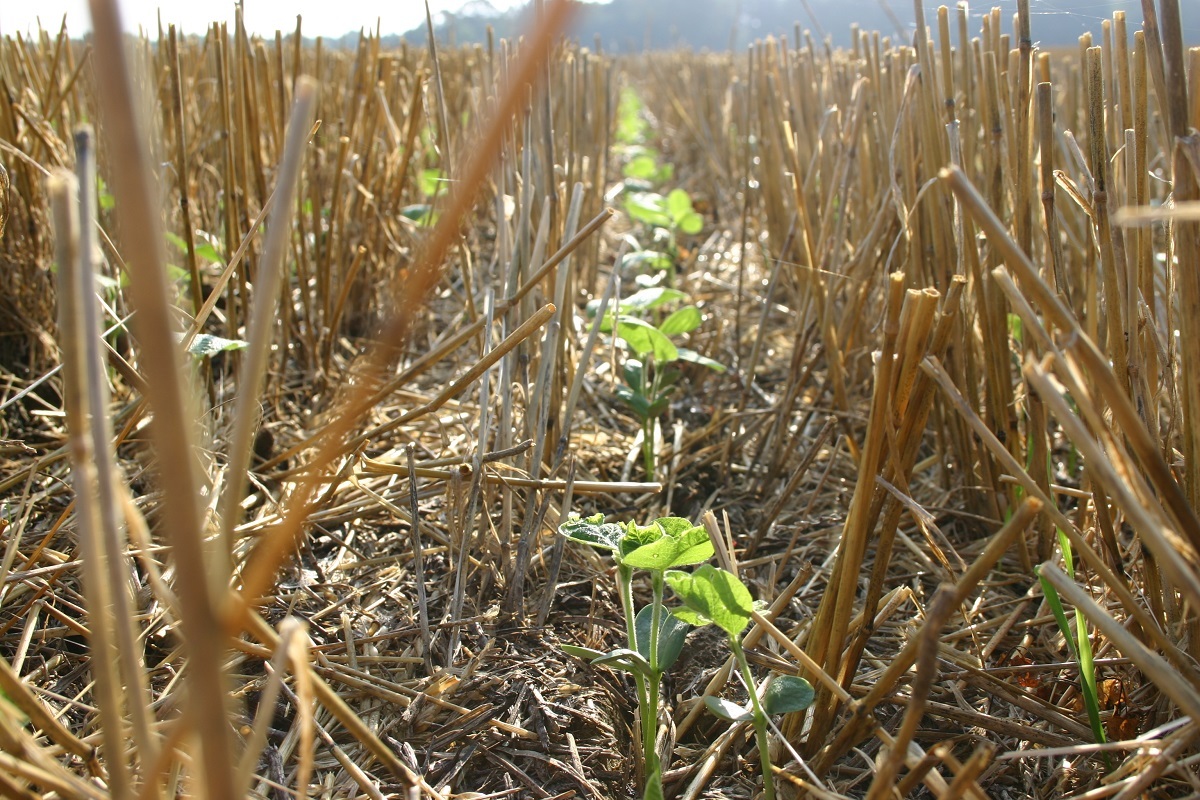
New Research Will Study Organic Double Cropping in Tennessee and Florida
KNOXVILLE, Tenn. – Consumer demand for organically grown crops and meat products continues to grow, but the producers who labor to supply these commodities typically experience multiple challenges that lower their yields when compared to the yields of non-organic counterparts. New research seeks to help farmers increase the yields of organically grown grains and forages.
The USDA National Institute of Food and Agriculture (NIFA) Organic Transitions Program has awarded a team of researchers from the University of Tennessee Institute of Agriculture and the University of Florida a grant of nearly $1 million to study whether double cropping grains or forages can increase organic crop and forage yields. Double cropping, which is harvesting two crops from the same land in one year, can help decrease the gap between market demand and production. The long growing season of the southeastern U.S. provides favorable conditions for double cropping, which is already widely practiced by the region’s producers of non-organic crops and forages and by a few producers who are transitioning their conventionally farmed land to organic production.
Sindhu Jagadamma, an associate professor in the UT Department of Biosystems Engineering and Soil Science, will lead the project team. Other UT team members include Debasish Saha, an assistant professor and soil scientist, also from the Department of Biosystems Engineering and Soil Science; Aaron Smith, a professor with the Department of Agricultural and Resource Economics; and Ethan Parker, director of the East Tennessee AgResearch and Education Center headquartered in Knoxville.
Jagadamma is also coordinating the efforts of the team members from the University of Florida, including Emma Matcham from the Agronomy Department, Gabriel Maltais-Landry from the Soil, Water and Ecosystem Sciences Department, and Zane Grabau from the Entomology and Nematology Department.
The 4-year effort will include 3 years of field experiments on certified organic lands at two locations: Knoxville, Tennessee, and Citra, Florida.
“We will test slightly different crop rotation treatments in each location to align with the local conditions, such as climate and soils, growing periods, stakeholder preferences and marketing opportunities,” says Jagadamma. “There will be five rotation treatments in each location, which will include two full-season soybean and three double-cropped soybean systems. The summer crops will rotate between single or double-cropped soybean systems and corn. The winter crop choice preceding the single or double-cropped soybean systems includes rye and wheat, and barley as cover crops, wheat and barley for grain and wheat and barley for forage, depending on the study location and rotational treatments.” The study will also explore different residue and weed management strategies with the goal of optimizing productivity and soil health. Jagadamma stresses that nutrient cycling, soil carbon accumulation and soil health will be studied in addition to grain and forage yield and quality. “Research outcomes will be shared with stakeholders through comprehensive extension and education programs at both locations,” she said.
Another project investigator, Debasish Saha, critically contributed to the proposal development. Saha says, “While double crop soybean after wheat is no surprise for conventional producers in the region, fitting that into organic setting comes with several challenges related to nutrient and weed managements. This award will allow us delving into some of the solutions to these problems to guide the stakeholders.”
Jagadamma is among the faculty winning the UT AgResearch Dean’s Grantsmanship Award. This honor recognizes the extraordinary effort of UTIA faculty members in successfully securing competitive extramural grants and contracts and who exceed expectations of good departmental and institutional citizenship. Jagadamma’s soil health lab is highly visible within and outside UTIA for collaborative research and training. In 2022 she received the NRCS Area 2 Partnership Achievement Award. Her excellent grantsmanship has resulted in more than $70 million in total grants ($8 million to her research program), including 10 USDA-NIFA awards for which she is principal investigator or a named Co-PI.
More details about this award can be found at the USDA website: portal.nifa.usda.gov/enterprise-search/ss/1992.
The University of Tennessee Institute of Agriculture is comprised of the Herbert College of Agriculture, UT College of Veterinary Medicine, UT AgResearch, and UT Extension. Through its land-grant mission of teaching, research and outreach, the Institute touches lives and provides Real. Life. Solutions. to Tennesseans and beyond. utia.tennessee.edu.